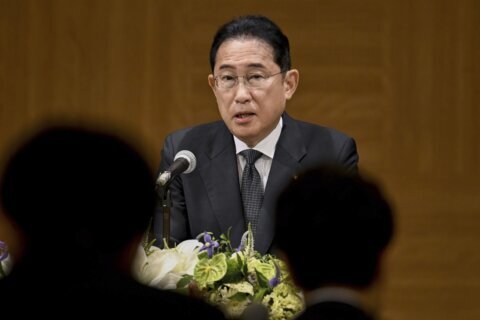Honesty isn’t always the best policy when it comes to your answers in a job interview. Ideally, an interview is a candid discussion between the candidate and interviewer to determine fit on both sides, but some disclosures can hurt your odds of being offered the position if you share them with your interviewer. Here are eight examples of what not to say in an interview — even if they’re true.
[READ: Common Job Interview Questions and How to Answer Them.]
1. That Job Isn’t on My Resume Because I Was Only There for 2 Months
Your resume isn’t required to be a comprehensive listing of everything you’ve ever done. It’s a marketing document, and it’s fair to exclude minor stints. But mentioning that you only worked somewhere for two months is likely to make your interviewer wonder if you got fired, you couldn’t get along with your co-workers or something else went wrong. Exceptions to this rule are summer jobs, temp jobs, contract work or other positions designed to be short term.
2. I’m Applying to Grad School for the Fall
Graduate school is an admirable achievement to employers if you’ve already attended, but it’s a different story if you’re planning to return to school in the near future. Telling a potential employer that you soon plan to pursue a higher degree is like announcing, “I’m hoping to leave this job in a year or less.”
If you clarify in your interview that you plan to attend school locally or online and it won’t interfere with full-time work hours, this might not be an issue for some employers. But interviewers for some jobs — especially positions with heavy workloads — will worry that you won’t be able to balance work and school effectively.
[READ: Job Skills to List on Your Resume (And What to Exclude)]
3. My Last Job Was a Nightmare
Interviewers aren’t naive and recognize that some candidates may have previously experienced terrible bosses and headache-producing jobs. The problem comes if you badmouth a previous job or manager in an interview since the interviewer has no way of knowing the other side of the story. Maybe you’re the one who’s difficult to work with or you have unreasonable expectations of avoiding all workplace stress. Announcing that you had a poor experience in your last job shows one thing for certain: You’re not very discreet, which can hurt your chances of landing the job.
4. I Don’t Have References
If you haven’t identified any professional references yet — such as former managers, co-workers, clients, colleagues or professors from past positions, volunteer jobs or college — prioritize this step before you start interviewing. You need to be able to offer references who will vouch for your ability and character. If you can’t find anyone who can speak about your work, most employers will assume it’s because your work has been problematic.
5. I See This Job as a Foot in the Door and Hope to Move Up Quickly
While you might think this statement shows the hiring team how ambitious you are, managers may see this as a red flag that you’re not going to be content spending a reasonable amount of time in the job they’re hiring for. Managers generally want people who will stay for at least a year if not longer. Many may not want to hire people who are going to be angling to move out of the position quickly.
6. What I’d Really Like to Do Someday Is …
If you’re tempted to share your dream of starting your own catering business when you’re interviewing as a programmer, resist the urge. Interviewers hope to hire people who are excited about the job at hand, and they want to hear that the role fits your goals. If you announce that you wish you were doing something else instead — or that you might decide to do something else soon — they’re likely to get concerned about how satisfied you’ll be if they hire you.
[Is Job Hopping the Best Way to Advance in 2024?]
7. I’m Interviewing in Several Different Fields
You may be exploring different career options, but this isn’t wise to bring up in an interview. Managers want to see that you’re confident about wanting the job before they hire you. If you’re not sure what industry you want to work in or what job you want to do, they’ll likely want you to figure that out before they consider bringing you on board.
8. I’m Going to Wait in the Reception Area for My Ride
At the end of the interview, you should still be conscious of oversharing. Avoid chitchat that could tank your chances of being hired even if you just gave a stellar interview performance. If someone else drove you to the interview, keep that to yourself. You don’t want to raise concerns in the manager’s mind about whether you’ll be able to reliably get to work if you’re hired.
More from U.S. News
6 Expert Tips for Interview Success
20 Best Questions to Ask an Interviewer
How to Describe Weaknesses in a Job Interview
What Not to Say in an Interview — Even If It’s True originally appeared on usnews.com







